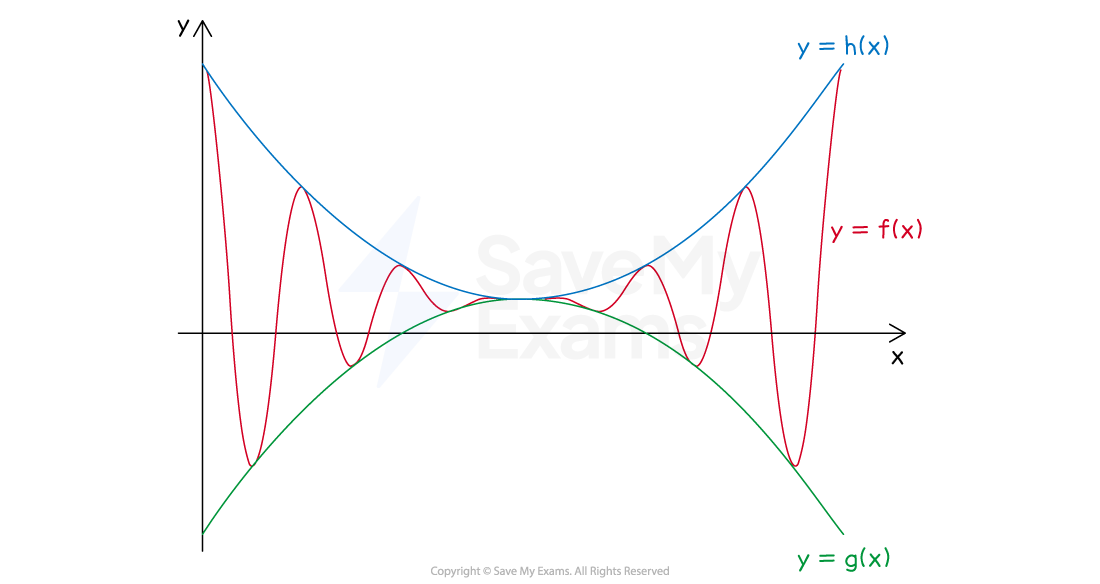What is the squeeze theorem in AP® Calculus?
The squeeze theorem (also known as the sandwich theorem) is a fundamental principle in calculus that assists in determining the limit of a function. It is particularly useful when the limit of a function is difficult to evaluate directly.
The theorem states that:
If you have two functions,
and
, which bound a third function
such that
for all
in some interval around a point (excluding the point itself if necessary)
and if the limits of
and
as
approaches a particular value are equal
then the limit of
as
approaches that value must also be the same

This theorem is particularly pertinent in AP® Calculus as it provides a robust technique for solving limits where direct substitution might be challenging or where functions exhibit indeterminate forms.
Squeeze theorem study resources to ace your exams
Save My Exams has a great range of resources to help you explore the squeeze theorem in more detail. Try this study guide on the topic, then have a go at some multiple choice and free response exam questions.
Explore our Calculus AB and Calculus BC study resources.
Examiner-written AP® Calculus AB revision resources that improve your grades 2x
- Written by expert teachers and examiners
- Aligned to exam specifications
- Everything you need to know, and nothing you don’t

Share this article

 written revision resources that improve your
written revision resources that improve your